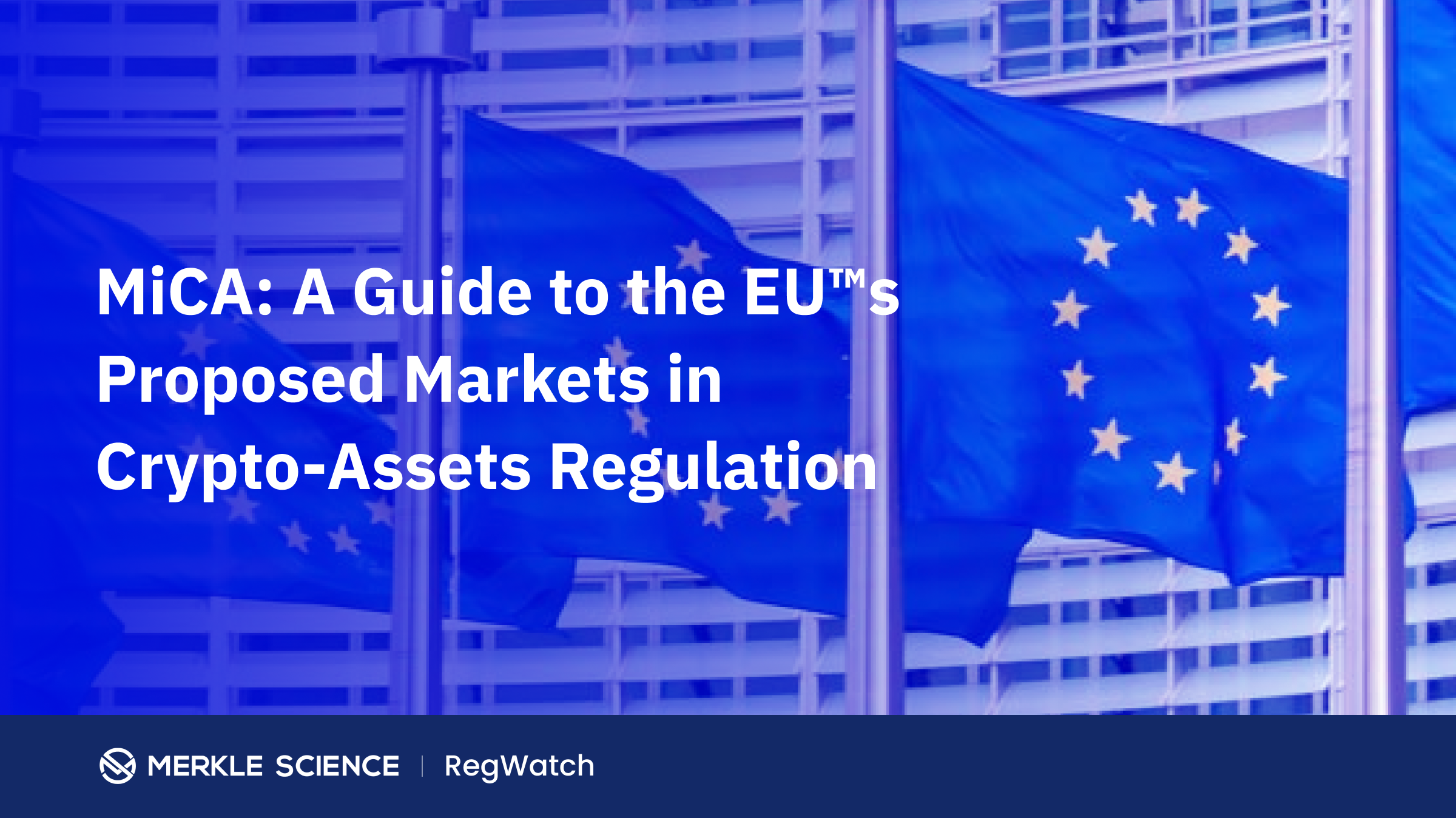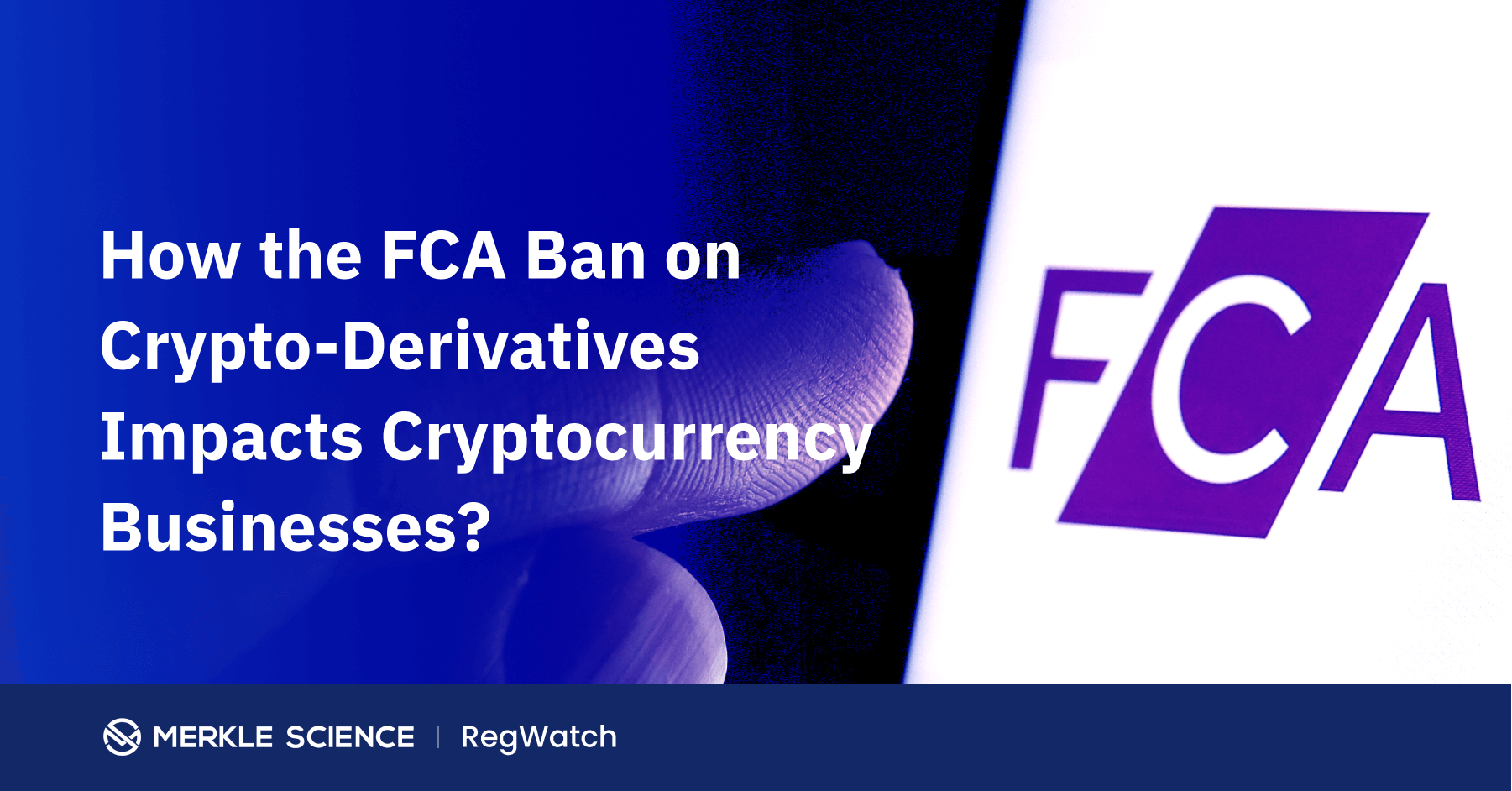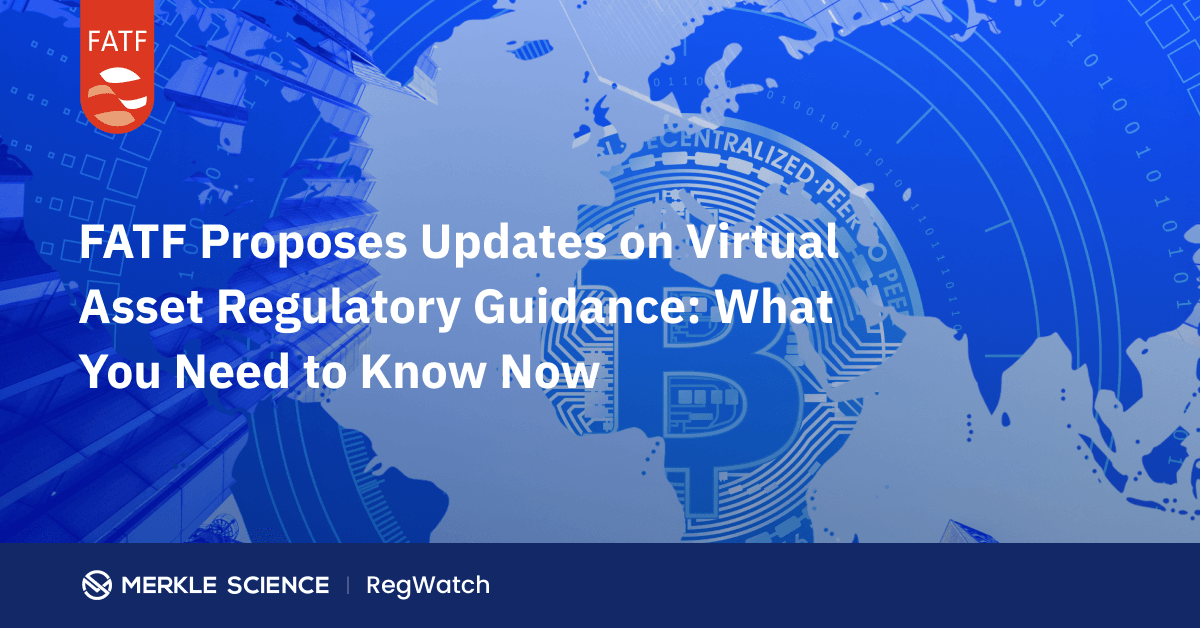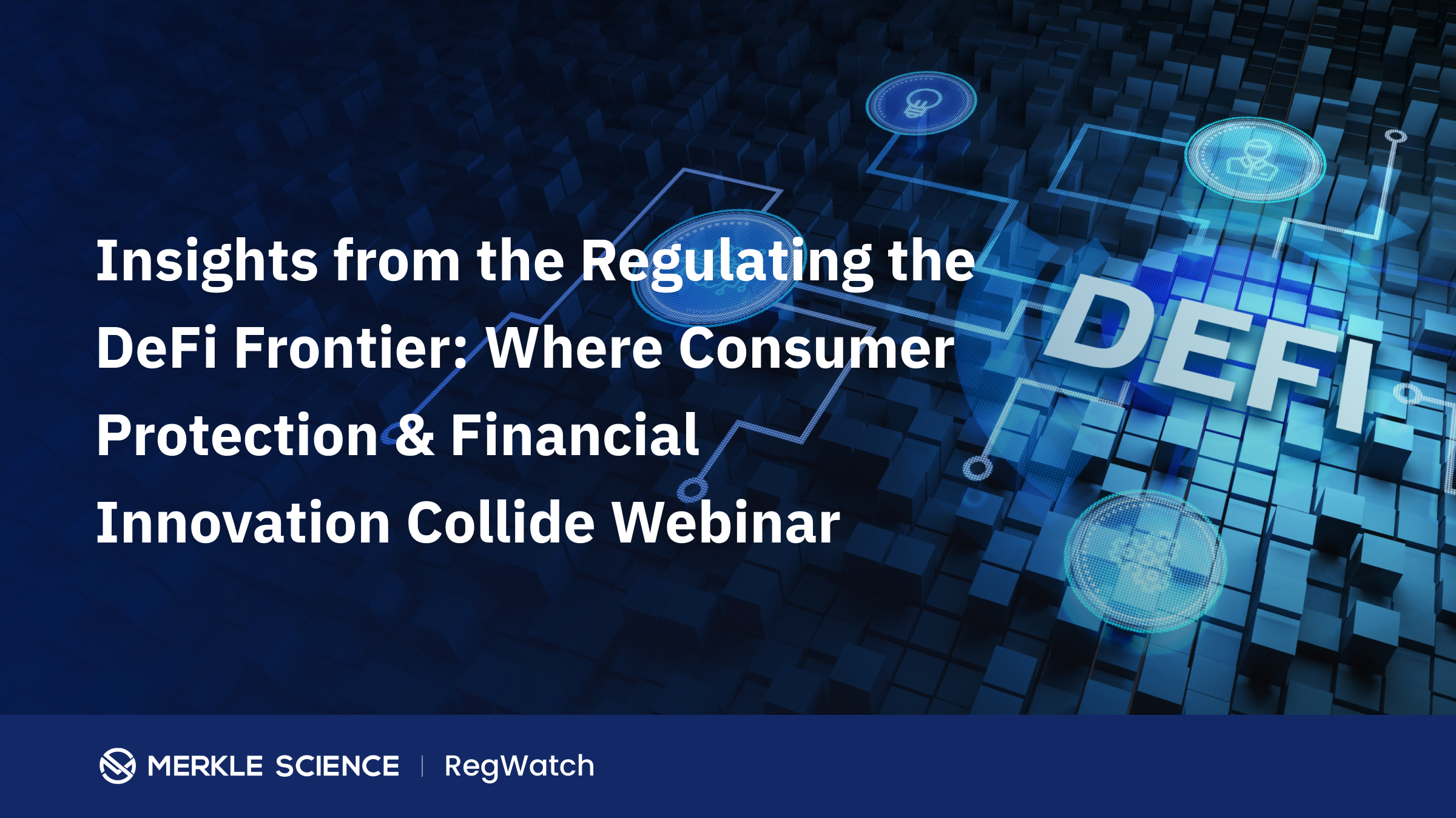MiCA: A Guide to the EU's Proposed Markets in Crypto-Assets Regulation
It’s a proposal from the EU to bring a definition to those types of crypto-asset which it feels need to be regulated and set down the main rules.

Identify suspicious transactions, prevent fraud & comply with AML, KYC & CFT regulations
Forensically analyze cryptocurrency transactions, track stolen funds, and investigate crime

Perform due diligence, flag risky transactions & generate risk reports

Training and certification for compliance & investigation teams

It’s a proposal from the EU to bring a definition to those types of crypto-asset which it feels need to be regulated and set down the main rules.

In October, the FCA announced a ban on the sale of crypto-derivatives and exchange-traded notes...

Regulators around the world are introducing increasingly stringent and specific laws to fight crypto crime. Whilst the global volume of illicit crypto-based...


In an on-going effort to set international standards that aim to prevent illegal activities, the Financial Action Task Force (FATF) released a public consultation on...

On Thursday, April 15, 2021, the US Treasury Department imposed sanctions onsixteen entities and sixteen individualsfor acting on behalf of the Russian network that...

According to Merkle Science’s own data, between 2016 and 2019, transaction volumes between illicit actors and UK-headquartered VASPs increased by 9.5 fold. In addition, out of the 23 virtual asset exchanges headquartered in the UK, 14 of them (60%) have strict compliance already in place and do not allow customers to transact on their platform without proper KYC.

With increasingly great attention placed on DeFi and institutional finance moving into the space, our panelists Matthew Homer (Exec. In Residence, Nyca Partners & Former Executive Deputy Superintendent, Research & Innovation, New York State Department of Financial Services ), Jacob Yunger (Director Financial Innovation, FINRA), Philip W. Raimondi (Sr. Assistant General Counsel, CFTC), and our very own Mary Beth Buchanan (EVP Americas & Global Chief Legal Officer, Merkle Science) discussed the risks and regulatory challenges surrounding DeFi with Ian Taylor ( Executive Director, CryptoUK).
Merkle Science believes in smart regulation around DeFi. Merkle Science recently published “Diving into DeFi: Fundamentals from the Financial Frontier” — a comprehensive primer of the current DeFi landscape especially well-suited for those who have started navigating DeFi, that gives an overview of the types of DeFi platforms, emerging trends, regulatory concerns, as well as risks individuals should be aware of when engaging with the ecosystem.
.png)
Decentralized Finance (DeFi) is pegged to be the next frontier of fintech innovation. Though the future of DeFi looks promising, it faces some significant regulatory hurdles. Merkle Science recently published “Diving into DeFi: Fundamentals from the Financial Frontier” — a comprehensive primer of the current DeFi landscape that includes a look into the Financial Action Task Force’s (FATF) potential approach toward the space based on its latest draft updated guidance for virtual assets (VAs) and virtual asset service providers (VASPs).
.png)
The growth in the crypto market has fuelled U.S. regulators to increase regulatory oversight on the crypto industry. To this end on 9 August 2021, the Securities and Exchange Commission (SEC) issued a cease-and-desist order imposing a $10.4 million USD fine against crypto exchange Poloniex for operating an “unregistered online digital asset exchange”.